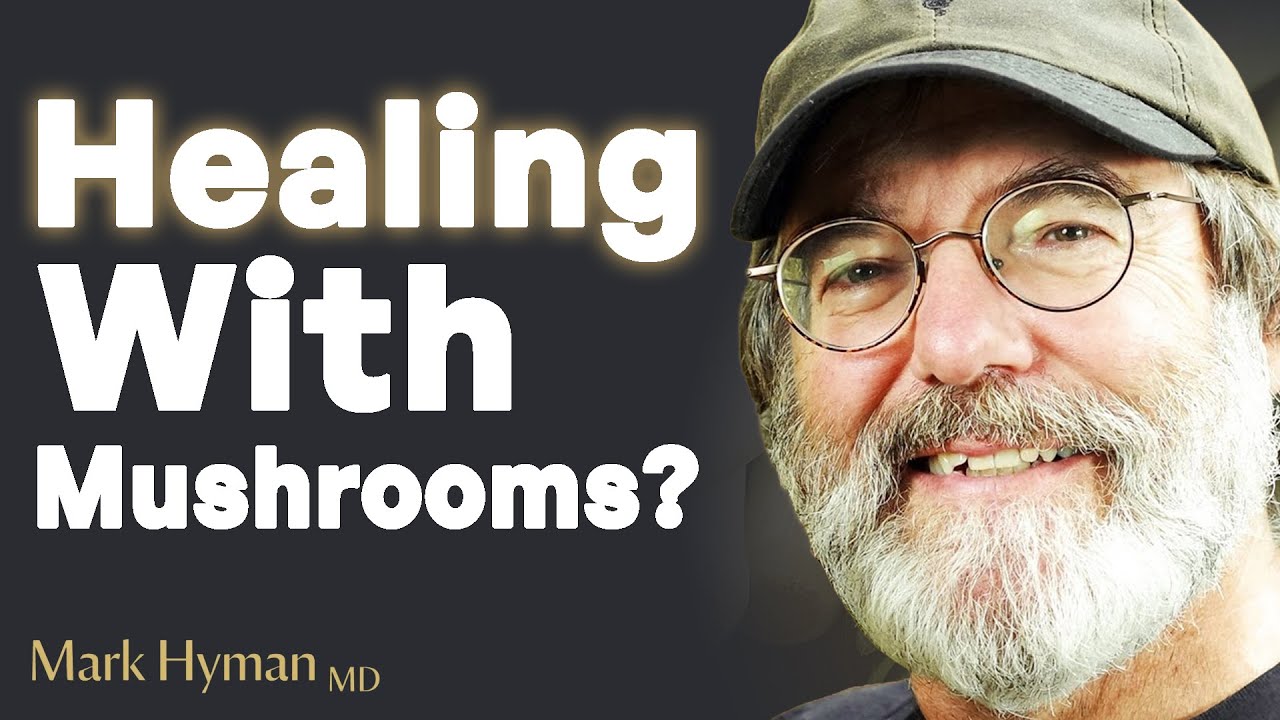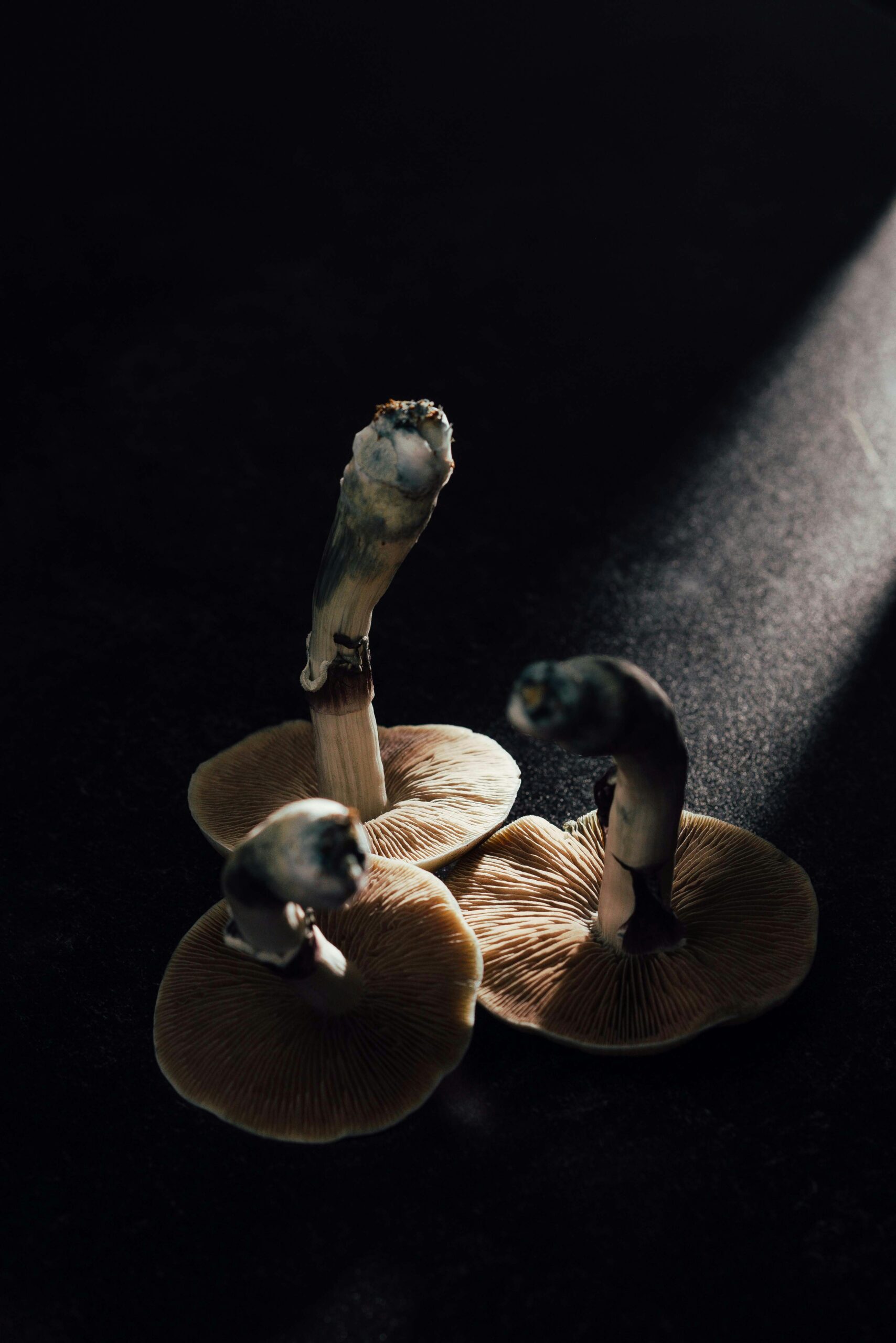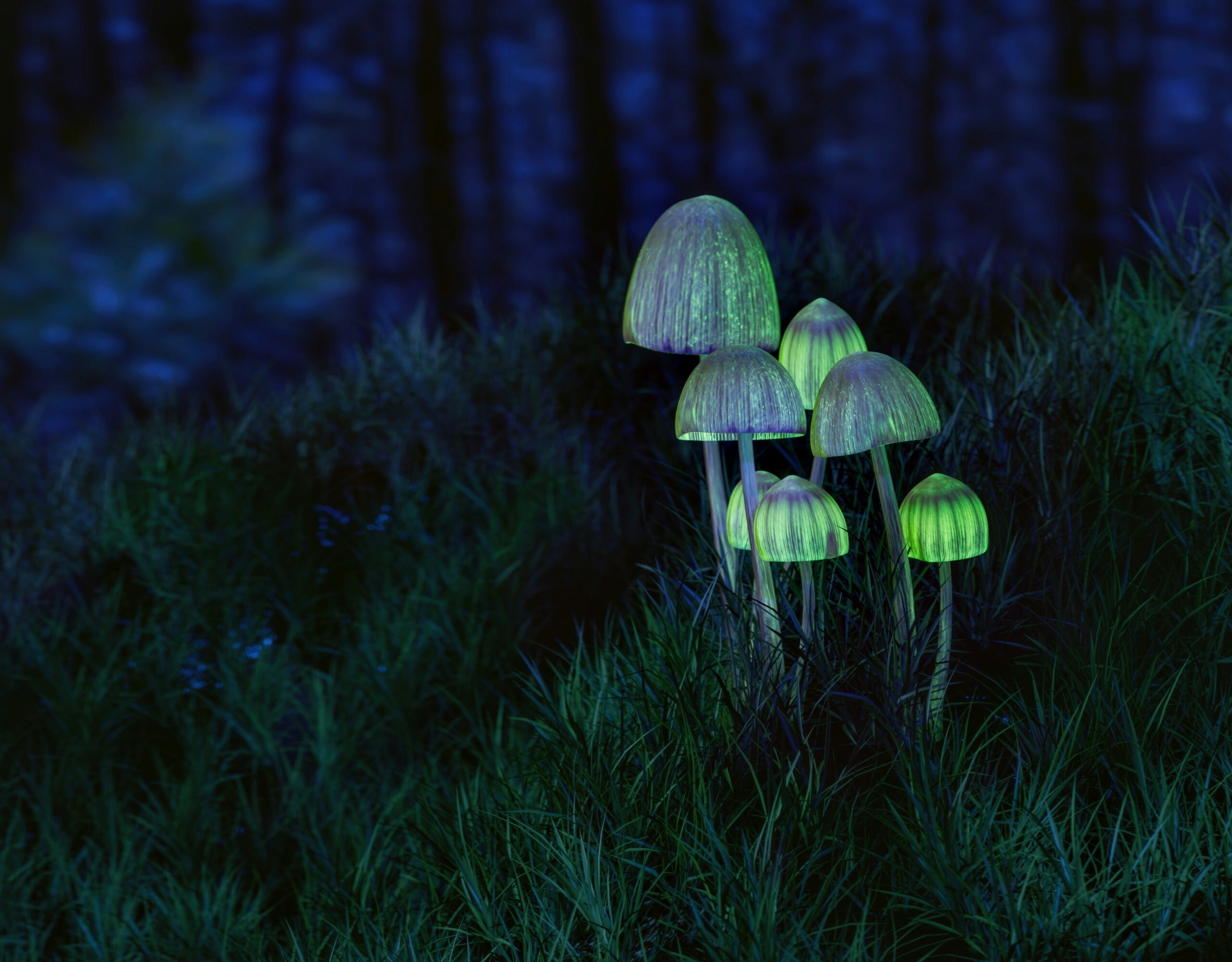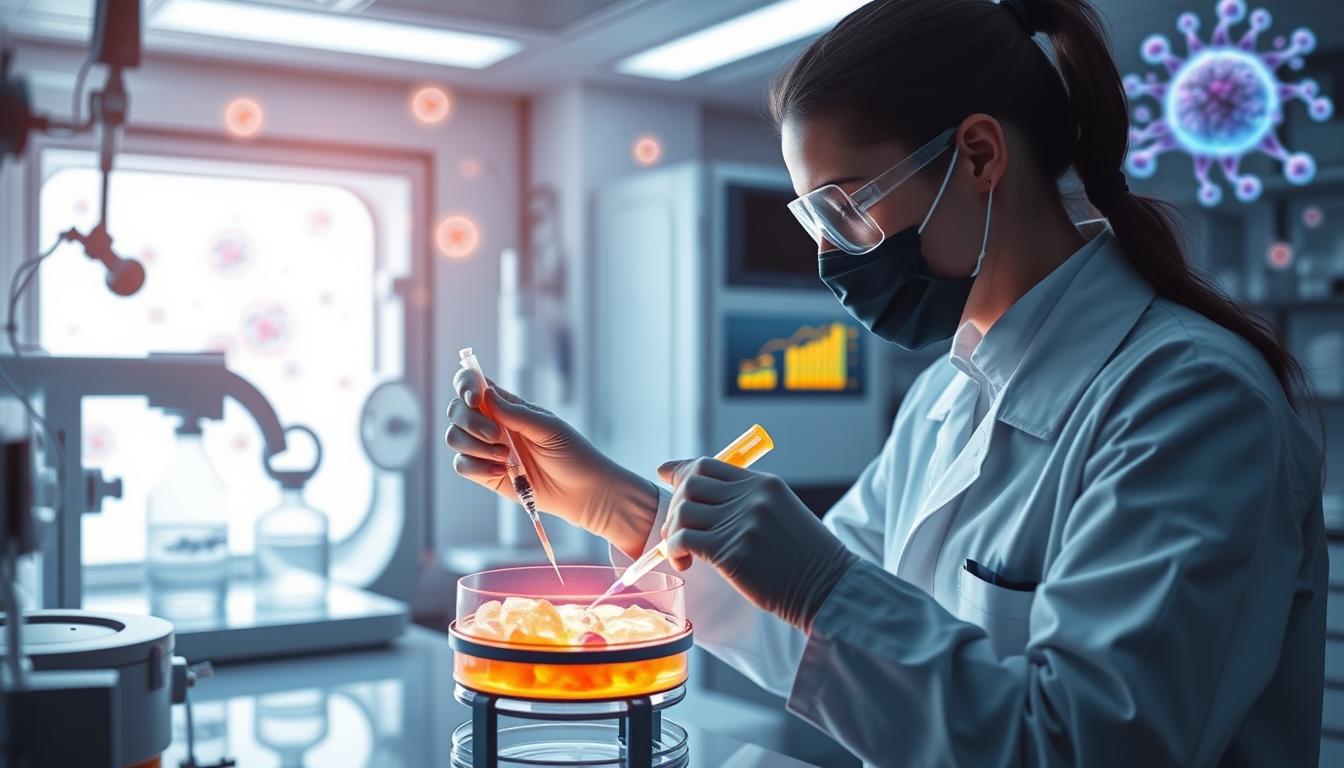In the context of a growing conversation about mental health, understanding the therapeutic potential of psilocybin is becoming increasingly important. Psilocybin, a compound found in certain mushrooms, is being recognized as a promising treatment for conditions like PTSD, depression, and addiction. This article explores insights shared by Paul Stamets, a renowned mycologist, about the medicinal uses of mushrooms and their significant impact on mental wellness. Through his work, he sheds light on how mushrooms not only support human health but also play vital roles in our ecosystems.
Mushrooms have a rich history and complex relationships within nature that contribute to their therapeutic potential. With ongoing research revealing their ability to foster neuroplasticity and assist in trauma resolution, psilocybin is at the forefront of a new approach to mental health treatment. As more people discover the benefits of fungi, the hope is to see a future where innovative practices will redefine mental wellness and create new avenues for healing.
The Psychedelic Renaissance
Recognition of Psilocybin as a Therapeutic Tool
You may have noticed that psilocybin, a compound found in certain mushrooms, is gaining recognition for its potential as a therapeutic tool. This psychedelic substance is being explored for its effectiveness in treating various mental health conditions, including PTSD, depression, and addiction. Research indicates that psilocybin may help in rewiring brain circuits and promoting neuroplasticity, which are crucial for healing and recovery. The growing body of scientific evidence is prompting a shift in perspective, moving from viewing psychedelics merely as recreational drugs to understanding their significant therapeutic value. As you engage with this renaissance, you could feel empowered by the potential for psilocybin to change lives, including your own or someone you know.
Cultural Shifts in Attitudes toward Psychedelics
Culturally, attitudes toward psychedelics are evolving. Where once these substances were stigmatized, today there’s a burgeoning interest in their medical applications. You may resonate with the idea that as people learn more about the benefits of psychedelics, there’s a growing acceptance in society. This shift is being fueled by personal anecdotes, scientific studies, and a general weariness with conventional treatments that often fail to address the root causes of mental health issues. This changing paradigm invites you to be part of a larger conversation about mental wellness and the ways in which psychedelics might contribute positively to individual and collective healing.
Challenges and Opportunities in Research
While the potential of psilocybin is exciting, it is important to recognize the challenges that come with researching it. Regulatory hurdles, societal stigma, and funding limitations can impede progress. However, these obstacles also present opportunities. Researchers are beginning to navigate these challenges innovatively, advocating for policy changes that could facilitate studies and clinical trials. As you explore this area, consider how your voice can contribute to the dialogue advocating for responsible research and therapeutic use of psychedelics.
Understanding Psilocybin
Chemical Structure and Mechanism of Action
When you delve into the chemical structure of psilocybin, it becomes evident that this compound interacts uniquely with the brain. It is a tryptamine derivative, resembling neurotransmitters like serotonin. Upon ingestion, psilocybin converts into psilocin, which binds to serotonin receptors, particularly the 5-HT2A receptor. This interaction is believed to influence perception, mood, and cognition, leading to the profound experiences reported by users. Understanding this mechanism not only enriches your appreciation for psilocybin but also lays the groundwork for its therapeutic applications.

Effects on the Brain and Consciousness
Experiencing psilocybin may lead to immersive alterations in perception, thought patterns, and emotional states. You might find it fascinating that studies indicate psilocybin can decrease activity in certain brain networks, like the default mode network (DMN), which is associated with self-referential thoughts. This change can facilitate a sense of unity and connection to the world, often described as a spiritual experience. The exploration of consciousness through the lens of psychedelics presents an intriguing area for personal reflection and understanding of one’s place in the universe.
Comparative Analysis with Other Psychedelics
In the realm of psychedelics, psilocybin stands alongside other well-known substances like LSD, DMT, and mescaline. Each has unique properties and effects, but you may find psilocybin particularly appealing due to its natural origins and relatively low side effects compared to synthetic counterparts. Understanding how psilocybin compares to other psychedelics invites you to reflect on what aspects of these experiences resonate most with you, from therapeutic potential to personal discovery.
Historical Context
Origin of Fungi on Earth
The story of fungi is ancient and fascinating, dating back approximately 2.5 billion years. You might marvel at the idea that fungi were among the first multicellular organisms to colonize land, contributing significantly to the formation of soil and the sustainability of ecosystems. This historical perspective highlights the integral role fungi, including psilocybin mushrooms, have played in both ancient and modern biology.
Traditional Use of Psilocybin in Indigenous Cultures
Throughout history, various indigenous cultures have utilized psilocybin-containing mushrooms for spiritual and medicinal purposes. As you consider this rich heritage, it’s enlightening to acknowledge how these practices have historically offered insights into consciousness and well-being. Many indigenous groups view psilocybin as a sacred tool that provides guidance, healing, and a connection to the divine, honoring the wisdom of their ancestors and the natural world.

Evolution of Research on Psychedelics
Over the decades, research on psychedelics has seen dramatic shifts. You may find it surprising that in the early 20th century, substances like psilocybin were subject to legitimate scientific inquiry. However, societal apprehensions led to intense restrictions that stifled progress. Today, we are witnessing a renaissance fueled by renewed scientific curiosity and cultural openness. As you observe this evolution, consider how you can be part of the new wave of responsible exploration and understanding of psychedelics.
Mental Health Issues Targeted by Psilocybin
Post-Traumatic Stress Disorder (PTSD)
PTSD is a significant mental health issue, and psilocybin is emerging as a promising treatment. If you or someone you know has experienced trauma, the potential of psilocybin to assist in processing those feelings is noteworthy. Research suggests that psilocybin can help patients confront traumatic memories with less emotional distress, providing a pathway to healing and emotional release.
Depression and Treatment-Resistant Depression
For those struggling with depression, particularly treatment-resistant forms, psilocybin holds exciting possibilities. Studies indicate that psilocybin can lead to substantial improvements in mood and outlook, often with long-lasting effects after just a few sessions. If you find yourself or others stuck in cycles of despair, exploring psilocybin’s impact under professional guidance could be a transformative experience.
Addiction and Substance Use Disorders
In addressing addiction, psilocybin is showing promise as a therapeutic aid. By enabling users to confront underlying emotional triggers and existential questions, psilocybin can foster deep insights that contribute to recovery. This potential is particularly significant in tackling substance use disorders. If you’re interested in alternative treatments, the rising body of evidence supporting psilocybin may offer hope to those seeking recovery and support in their journey.
The Role of Paul Stamets

Contributions to Mycology and Psychedelic Research
Paul Stamets is a pivotal figure in the world of mycology and psychedelic research. You might admire how his extensive knowledge of fungi has illuminated the pathways for understanding not only psilocybin but all fungi’s ecological role. His work emphasizes the interconnectedness of life and mushrooms’ vast potential for healing both people and ecosystems.
Advocacy for Medicinal Uses of Mushrooms
As an advocate for the medicinal uses of mushrooms, you may find great inspiration in Stamets’ passionate promotion of fungi’s benefits. He works tirelessly to spread knowledge about the potential health advantages of various mushroom species, aiming to cultivate greater societal awareness and appreciation for these organisms. By listening to leaders like Stamets, you could discover new ways to consider mushrooms as part of holistic health practices.
Founding Fungi Perfecti, LLC
Fungi Perfecti, LLC, founded by Stamets, has become a reputable source for mycology education and medicinal mushroom products. You might appreciate how his company focuses on sustainability and health, delivering a range of fungi-based supplements. By supporting such companies, you contribute to a growing movement that values natural healing modalities grounded in centuries of traditional use.
Biological and Ecological Significance of Fungi
Mycelium: The Earth’s Natural Internet
Mycelium is an extraordinary network that connects different organisms in an ecosystem. You might find the concept of mycelium as an “Earth’s natural internet” captivating, as it facilitates communication and nutrient exchange among plants, fungi, and even animals. This interconnectedness underscores the importance of preserving fungal networks for ecological health.

Symbiotic Relationships with Plants
Incredibly, mycelium forms symbiotic relationships with plants through mycorrhiza, enhancing nutrient uptake in exchange for carbohydrates. As you ponder your connection to nature, consider how these relationships are vital for the thriving of ecosystems. Understanding mycorrhizal partnerships enriches your appreciation of nature while emphasizing the importance of preserving fungal habitats.
Nutrient Transmission and Soil Health
Healthy mycelial networks are essential for nutrient transmission and overall soil health. If you’re interested in gardening or sustainable farming, recognizing the role fungi play in nutrient cycling can transform your practices. Healthy soils enriched with mycelium lead to resilient and productive ecosystems, a valuable perspective whether you are growing a garden or simply enjoying the outdoors.
Current Research and Clinical Trials
Overview of Recent Studies
Recent studies focusing on psilocybin continue to illuminate its therapeutic potential. As you explore these findings, you might find it intriguing that clinical trials have shown promising results in treating various conditions, indicating a broadening acceptance within the scientific community. These studies pave the way for potential future integration of psilocybin into conventional treatment regimens.
Microdosing: Impacts and Findings
Microdosing, or taking sub-threshold doses of psilocybin, has gained interest as a potential means to boost cognitive function and emotional well-being. You may find the community response to microdosing particularly engaging, as large-scale citizen science initiatives are gathering data on its effects. While more controlled research is needed, anecdotal evidence suggests positive outcomes for many involved.
Future Directions for Psilocybin Research
Looking ahead, the future of psilocybin research is filled with promise. New studies aim to investigate its long-term effects, optimal dosing protocols, and potential applications in other mental health areas. As you stay informed, your curiosity could play a role in advocating for continued exploration and responsible use of psilocybin in both clinical settings and personal wellness practices.
Health Benefits of Various Mushrooms
Reishi: Immune Support and Calming Properties
Among the plethora of mushrooms, Reishi stands out for its immune support and calming properties. If you’re seeking natural ways to enhance your well-being, you might consider incorporating Reishi into your routine. Its adaptogenic qualities help the body manage stress, making it a fantastic ally for maintaining balance.
Chaga: Antioxidant Benefits
Chaga mushrooms are another powerhouse of health benefits. Rich in antioxidants, Chaga may help combat oxidative stress, which is linked to numerous health conditions. By adding Chaga to your wellness regimen, you could contribute to overall health and resilience against disease.
Lion’s Mane: Cognitive Function Enhancement
For those interested in cognitive enhancement, Lion’s Mane mushrooms are noteworthy. Research suggests that they may promote nerve growth factor (NGF) production, which supports brain health. If you’re looking to boost cognitive function, exploring Lion’s Mane might be an exciting venture.
Microdosing: A New Paradigm?
Definition and Protocols
Microdosing involves taking small, sub-psychoactive doses of psilocybin. This practice has grown in popularity as individuals report increased creativity, focus, and emotional resilience. You might find the personalized nature of microdosing appealing, as many users tweak their protocols to suit their lifestyle needs.
Community Involvement and Citizen Science
The rise of microdosing has also sparked interest in community science. You might encounter many platforms where individuals share their experiences and findings. This collective exploration fosters a sense of community and shared knowledge, inviting you to engage in discussions about the nuances of microdosing.
Potential Benefits for Neurodegenerative Disorders
Emerging research suggests that microdosing could have implications for neurodegenerative disorders such as Alzheimer’s or Parkinson’s. By promoting neuroplasticity and brain health, you may find hope in the potential of microdosing to address these challenging conditions. Staying informed will be essential as more studies explore these possibilities.
Conclusion
Summary of Key Points
Throughout your exploration of psilocybin and fungi, significant themes emerge: the therapeutic potential of psychedelics, the historical importance of psilocybin in cultures, and the ecological significance of mycelium networks. This comprehensive understanding empowers you with knowledge regarding the implications of psychedelics in mental health and wellness.
Future Outlook on Psilocybin in Mental Health Treatment
The outlook on psilocybin as a treatment modality is encouraging. With increasing research and changing cultural attitudes, you may anticipate that psilocybin will become more integrated into mental health treatment paradigms. As this journey unfolds, it invites you to stay engaged and informed about ongoing developments.
Call for Further Research and Public Dialogue
In closing, it is crucial to advocate for further research and responsible public dialogue surrounding psilocybin and other psychedelics. You can consider how your voice and actions can contribute to dismantling stigma and promoting informed discussions about the benefits and risks of psychedelics. Engaging in conversations about their therapeutic potential can foster understanding and pave the way for a brighter, healthier future. Stem cells have the extraordinary ability to repair and regenerate damaged cells, making them a promising solution for many chronic conditions. However, traditional stem cell therapy is often out of reach due to high costs, the need for donors, or the requirement to travel abroad. Fortunately, a groundbreaking stem cell technology is now available, offering a more affordable and accessible way to experience these benefits.
This technology complements healthy lifestyle habits—like eating well, exercising, and reducing toxins—to enhance the body’s natural healing processes. It accelerates recovery, supports immune function, and combats inflammation by strengthening your cells. To learn how this innovative solution can benefit you, your loved ones, or those facing health challenges, contact us at stemboostx @ gmail.com with the subject “AIWNBOX.”



